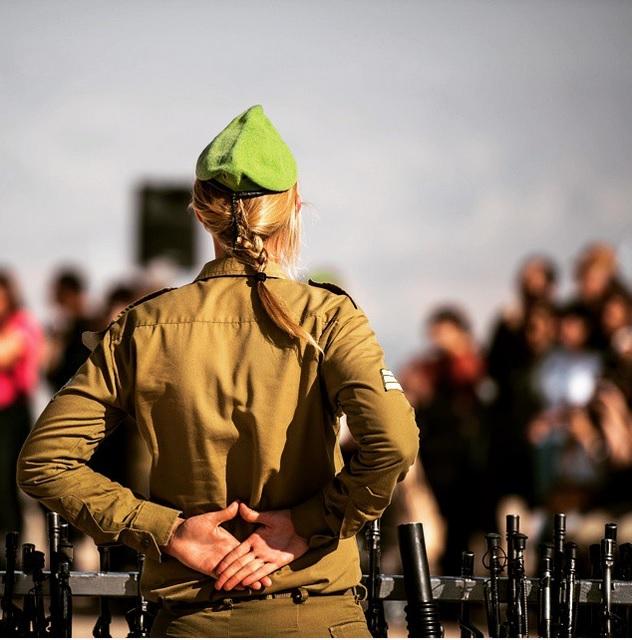Rates of eating disorders for women in the IDF have skyrocketed in the past decade.
In Israel, women — like men — have to serve in the military. But despite their equal presence in the Israeli Defense Forces, many face an unexpected struggle: eating disorders. In fact, the number of reported cases of eating disorders for women in the IDF has risen 200 percent over the past decade.
Danielle Aharoni joined the IDF when she was 18. Before joining the armed forces, she didn't struggle with body image issues. But after two weeks in basic training, she says she felt that “everyone around me was prettier and skinnier than I was.” So she stopped eating.
“The food in the army was not very inviting,” she says, “so it was easy to give it up.” This, in addition to the intense physical exercise that training demanded, meant that she lost nearly a third of her body weight in just two months.
Her eating disorder left her “weak, very nervous and tired most of the time,” she says. Plus, it was easy to hide behind her large army uniform. She says her eating disorder resulted in part from the immense pressure to pass her military training. Being constantly surrounded by other women, whose bodies she could compare to her own, didn't help. And Aharoni wasn’t alone in this; she says she knew at least five other women who dealt with eating disorders during their time in training, one of whom was a good friend.
Aharoni realized things had to change one night while working her first job as an officer. She was walking home, she says, "and my pants literally dropped down from my waist." This moment "was a turning point,” she says. She felt as though, if things didn't change, she was “heading towards a disaster.”
So Aharoni decided to get healthy, which meant eating more and exercising in a healthier way. Not only that, Aharoni realized she wanted to devote her “time and skills to fight this epidemic.”
She teamed up with Adi Barkan, a fashion photographer who was interested in these same issues. Barkan founded Simply You to share information about eating disorders and campaign for more realistic media representations of people's bodies.
With Barkan, Aharoni works on the RealUnreal project. Part of that means traveling across Israel to educate soldiers — both male and female — about eating disorders. Aharoni wants to help people be more wary of the unrealistic bodies shown on TV and in advertisements. By using the “language of beauty and aesthetics, and not the language of psychology,” Aharoni feels they are able to get through to the soldiers and really help them understand.
Her main message, she says, is that people should "appreciate and love themselves just the way they are."
Every day, reporters and producers at The World are hard at work bringing you human-centered news from across the globe. But we can’t do it without you. We need your support to ensure we can continue this work for another year.
Make a gift today, and you’ll help us unlock a matching gift of $67,000!
